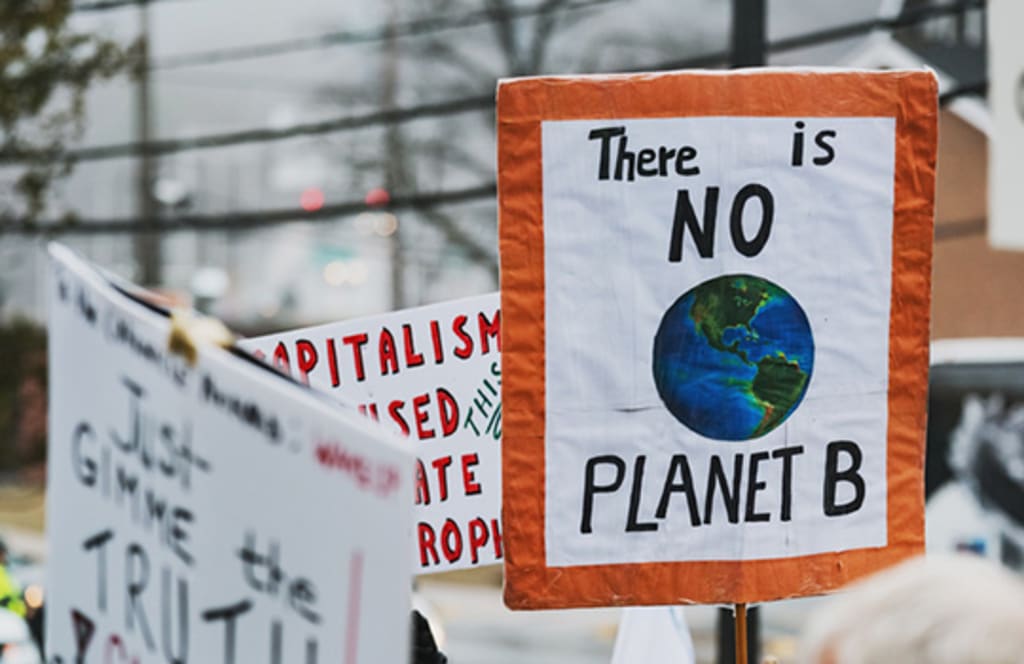Urgent Call for Global Action
The ongoing issue of global warming, environmental degradation, and its impact on the planet.

Title: Climate Change: Urgent Call for Global Action
Introduction :
Climate change has become one of the most pressing challenges of our time, with far-reaching implications for the environment, economies, and human well-being. The scientific consensus is clear: our planet is warming at an alarming rate, primarily due to human activities. This article explores the urgency of addressing climate change on a global scale, highlighting the need for immediate action to mitigate its impacts and ensure a sustainable future for generations to come.
Body:
I. The Evidence of Climate Change:
The evidence supporting climate change is overwhelming. Rising temperatures, melting glaciers, and increasing frequency of extreme weather events such as hurricanes, droughts, and wildfires all point to a changing climate. Scientists have meticulously studied temperature records, ice core samples, and climate models, providing irrefutable evidence that human activities, particularly the burning of fossil fuels, are the primary drivers of global warming. The Intergovernmental Panel on Climate Change (IPCC), a leading authority on climate science, warns that without swift action, we risk irreversible damage to ecosystems, loss of biodiversity, and significant threats to human societies.
II. Impacts on the Environment:
Climate change poses significant risks to the environment. Rising sea levels threaten coastal communities and low-lying islands, causing erosion, flooding, and loss of habitats. Ocean acidification, resulting from increased carbon dioxide absorption, endangers coral reefs and marine life. Changing precipitation patterns lead to droughts in some regions and increased rainfall in others, disrupting agriculture and water resources. The melting of polar ice caps and glaciers contributes to the loss of biodiversity and affects the livelihoods of indigenous communities.
III. Socioeconomic Consequences:
The consequences of climate change extend far beyond the environment. Disrupted weather patterns and extreme events jeopardize food security, exacerbate poverty, and increase the risk of conflicts over resources. Vulnerable communities, particularly in developing countries, bear the brunt of these impacts, facing challenges such as reduced crop yields, water scarcity, and displacement due to rising sea levels. The economic costs of climate change, including damage to infrastructure, increased healthcare expenses, and loss of productivity, are projected to be substantial.
IV. Mitigation and Adaptation Strategies:
Addressing climate change requires both mitigation and adaptation strategies. Mitigation focuses on reducing greenhouse gas emissions by transitioning to renewable energy sources, improving energy efficiency, and implementing sustainable practices. The Paris Agreement, signed by nearly all countries, aims to limit global warming to well below 2 degrees Celsius above pre-industrial levels. However, more ambitious actions are needed to achieve this goal.
Adaptation involves preparing for and adapting to the unavoidable impacts of climate change. This includes enhancing resilience in vulnerable communities, implementing sustainable land-use practices, and investing in climate-resilient infrastructure. International collaboration, knowledge sharing, and financial support are crucial to assist developing countries in their adaptation efforts.
V. The Role of Individuals and Governments:
While governments and international agreements play a significant role in addressing climate change, individuals can also make a difference. Lifestyle changes such as reducing energy consumption, adopting sustainable transportation options, and supporting renewable energy initiatives contribute to emission reductions. Moreover, individuals can advocate for policy changes, promote climate education, and hold governments and corporations accountable for their actions.
Conclusion :
The urgency to address climate change cannot be overstated. The consequences of inaction are dire, affecting every aspect of our lives and the planet we call home. The scientific evidence is clear, and the time for meaningful action is now. Governments, businesses, and individuals must come together to reduce greenhouse gas emissions, invest in clean technologies, and prioritize sustainability. By taking immediate action, we can forge a path toward a more resilient and environmentally
conscious future, ensuring a habitable planet for future generations.
About the Creator
Enjoyed the story? Support the Creator.
Subscribe for free to receive all their stories in your feed. You could also pledge your support or give them a one-off tip, letting them know you appreciate their work.






Comments
There are no comments for this story
Be the first to respond and start the conversation.